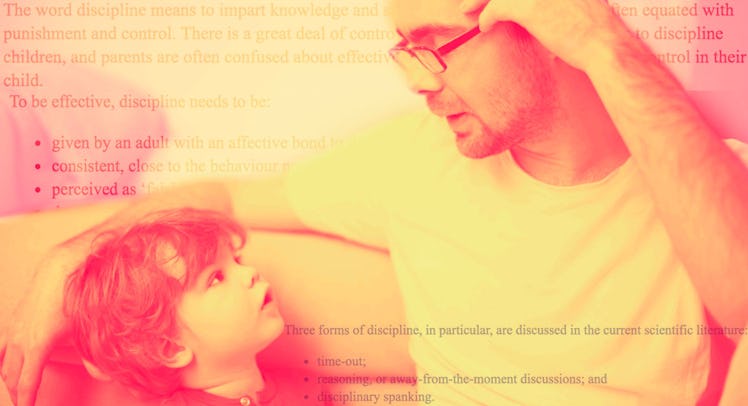Why Discipline Helps Kids
Proper discipline leads to self-motivation, self-control, and emotional stability over the long haul.

It doesn’t usually feel great to discipline your kid. There is often anger, sadness, tension, stress, and sometimes even tears. But proper discipline is one of the most important components of your child’s development. Difficult confrontations now will ultimately make life easier for you and, especially, your kid.
In short, discipline is about teaching children a system of values that they can use to guide them through life. This system can lead to a healthier emotional life that promotes the development of self-motivation, self-control, personality, and decision-making processes. In other words, discipline allows children to develop self-discipline, and helps them become emotionally and socially mature adults.
MORE: What Is the Difference Between Discipline and Punishment?
“Kids are all gas and no brakes because they don’t think about consequences naturally,” says Dr. Allan Beane, child behavior specialist and founder of Bully Free Systems. “It’s your job to make your child think about consequences. Have a casual conversation about how to treat people well, teach them that you can’t blame others for their choices. Discipline lets them [children] know that you don’t tolerate that behavior and there will be consequences for that behavior.”
By using discipline as a teaching tool, parents set their children up to be better decision-makers and frankly, better humans. So what does this look like? According to a study published in the Pediatric Health Journal, in order to help shape your child into a better teen and adult tomorrow, discipline must be:
- Given by an adult with an effective bond to the child.
- Consistent, close to the behavior needing change.
- Perceived as ‘fair’ by the child.
- Developmentally and temperamentally appropriate.
- Self-enhancing — ultimately leading to self-discipline.
RELATED: 11 Long-Term Benefits of Disciplining Your Kids
The next time your child may not be getting it just right, remind them why it’s important to do the right thing. When they are doing something that fits the family value system, reinforce the behavior. “It’s really important that you watch your child being kind and reward them and acknowledge their good behavior,” Beane says. “Reinforcement is more powerful than punishment often times.” The acknowledgment of consequences — good and bad — is what makes discipline a healthy tool (and a less stressful process) for the entire family.
Nowhere in these descriptions does discipline translate to “power struggle.” In fact, it’s an opportunity to empower your child, as long as you take the right approach. “The Golden Rule is ultimately the best teacher of discipline,” Beane says. “You teach them to treat people the way you want to be treated and that translates to an ability for your child to achieve power and control by doing good things.”
Read more of Fatherly’s stories on discipline, behavior, and development.
This article was originally published on